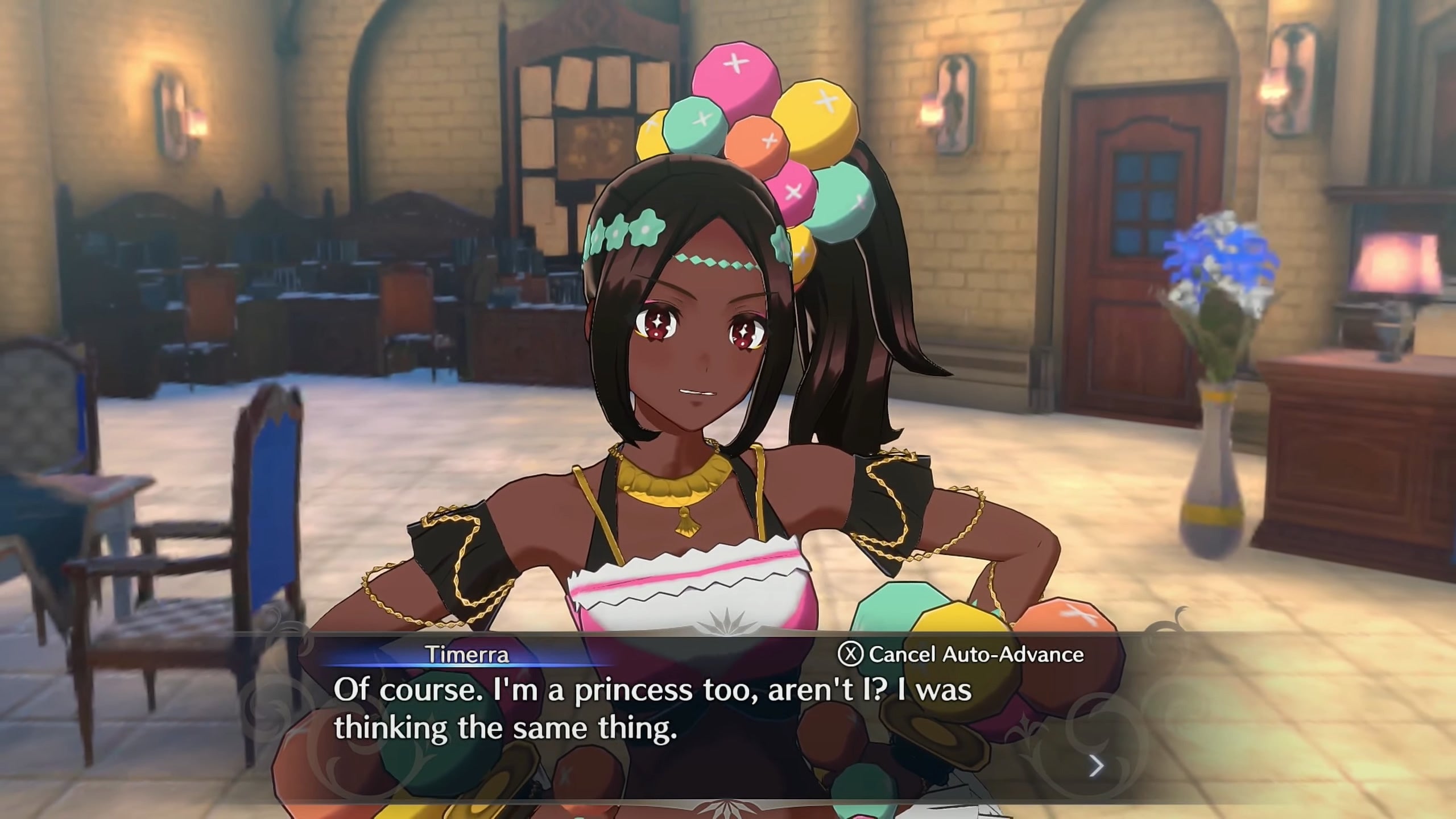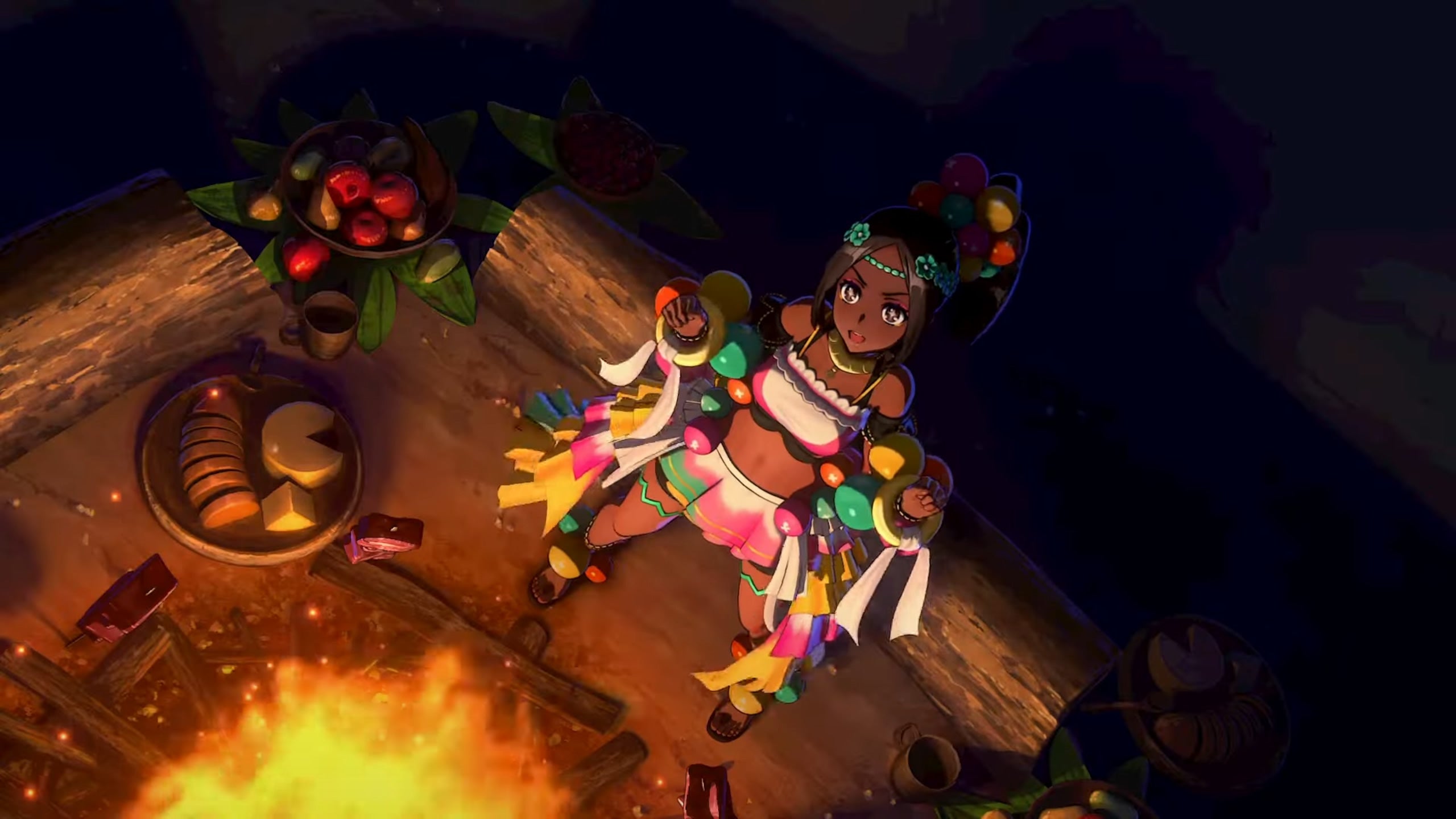Fire Emblem Engage has a handful of rad dark-skinned people, and the game doesn’t make a big deal out of it. They’re just there, and it’s the most natural thing in the world. This is rare, and I love it. You do get black characters in Japanese RPGs, of course - Final Fantasy 7’s Barret is the classic poster-child - but it’s also fair to say they’re not exactly common. Art reflects the culture in which it is made, but in my experiences exploring the country, black people are probably even more rare in Japanese games than in Japan itself for real, especially in cities. This debate was fired up again recently with comments from Final Fantasy 16 director Naoki Yoshida essentially saying that there wouldn’t be any major characters of color in FF16’s cast because it was aiming to be a “story rooted in reality”, even though it’s got dragons and magic. Some were angry and disappointed, while others argued that the developer vision of a less ethnically diverse medieval fantasy should be respected. Social media was insufferable for days. But at the same time, there’s an undeniable ongoing shift in design sensibilities, especially as franchises like Fire Emblem experiment with understanding newfound and growing audiences in the West. It appears some developers are sitting up and saying: hey, these people are playing our game, and it’s set in a fantasy world where pretty much anything goes. So why wouldn’t they be reflected somewhere in our cast? For something like Persona, set in real-life Japan, obviously non-Japanese folks are going to be uncommon. But Fire Emblem is pure fantasy - so let it rip. There’ve been a handful of explicitly black ally characters in Fire Emblem before, here and there, but one thing I’m really enjoying about Engage’s Timmera and Fogato is that… they’re just there. Major characters, slotting into pretty traditional Fire Emblem series and anime storytelling tropes - but without making a big deal out of the fact that, yeah, they’re a different color to the rest of the cast. Sometimes, it’s good when media makes a big deal out of this sort of thing, obviously. Likewise, it can be good for minority characters to focus on, highlight, or demonstrate their culture more explicitly. It depends on the setup. It depends on what the creators are trying to accomplish. But in an exhausting, loud world where the culture war is constant, sometimes it’s just nice to see a piece of yourself in a game, no strings attached, no major message, no performative song and dance about the how and the why. It just is. When I first saw them, I sort of steeled myself for the final product. When I heard they were the Princess and Prince of one of the Kingdoms established in Engage, I was ready for that Kingdom to be some sort of caricatured tribal send-up. But not so! There’s a vaguely predictable Gerudo-like desert sands vibe, but the Kingdom is also deliciously merged with more Western medieval looks to make it slot into the rest of this world. As for the Princess and Prince - they’re just pretty classic Fire Emblem characters, and I love that for them. They just happen to be black royalty served by a bunch of non-black Knights and Retainers. When you have your post-battle debriefs, often there’s a smattering of NPCs around, their backgrounds and skin tones running the gamut. In this world, that’s normal. None of this is a big deal, which in turn feels like a sort of big deal to me. In particular, I love that Timmera is of a character archetype and trope that appears in pretty much every Fire Emblem game. She’s the sort of character that usually proves popular with fanservice-driven elements of the audience, and so because of that it’d probably be pretty easy to stick to the mold. And largely, she does - except for that one way in which she doesn’t. Nintendo historically hasn’t been great about featuring many dark-skinned people in its games. Super Smash Bros. Ultimate has nearly ninety playable characters and the only one dark skinned is Ganondorf, a character who also is on that classic ‘dude corrupted by evil magic is so dark skinned they’re basically grey’ trope. I was one of those people disappointed when they added Min Min from ARMS when Twintelle, who is hugely popular and had been endlessly but lovingly memed, was right there. Fire Emblem Engage’s quiet representation sits with similar showings in Pokemon to show that the company isn’t entirely clueless about this stuff - and it makes me happy, and excited to see more characters like this in the future. If I’m being honest, Fire Emblem Engage’s story did leave me a bit cold. The actual game bit is significantly better than Three Houses, I think, but the narrative isn’t as strong. But these late-game units and their world was heartening to see - and hopefully this sort of representation, where it’s quiet but very present, can become more of a genre norm.

